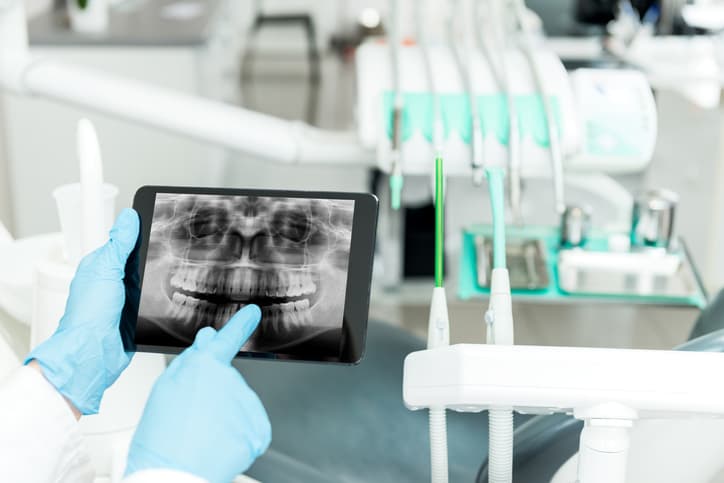 It can be a sign of something as common as a toothache — or something as serious as a heart attack. Here are some of the possible causes for your jaw pain.
It can be a sign of something as common as a toothache — or something as serious as a heart attack. Here are some of the possible causes for your jaw pain.Jaw Basics
Your jawbone is also called a mandible. It connects to your skull at a pair of joints known as the temporomandibular joints, or TMJs. These are located just in front of your ears, and they let you open and close your mouth.
TMJ Disorders
This is one of the most common reasons for jaw pain. About 1 in 8 people may have a TMJ disorder. You might get it if you injure your jaw or after an illness. Arthritis or other conditions can attack the cartilage that helps protect your joint. Stress can worsen it, too. Symptoms include:
- Clicking sound when you open your mouth
- Pain or ache around your ears, face, or jaw
- Constant headaches
- Ringing in your ears
- Dizziness
- Vision problems
If you think you might have a problem with your TMJ, get it checked out. Usually, your doctor or dentist may have you take over-the-counter drugs like acetaminophen or ibuprofen for pain. They also might recommend that you exercise your jaw muscles to strengthen them and to quit chewing gum or biting your nails. You might also get a plastic bite guard to keep you from grinding your teeth. Sometimes, you might need prescription drugs or surgery to fix the problem.
Trauma
Like any bone, you can knock your jaw out of place or break it. A blow to the jaw can cause:
- Bruises
- Swelling
- Pain
- Loose or knocked-out teeth
Usually, over-the-counter pain medication or steps like eating soft foods will help ease your discomfort as you heal. But if the pain won’t go away, or you can’t open and close your mouth right, you’ll need medical care.
Dental Problems
A bunch of issues with your teeth may also lead to jaw pain. They include:
- A toothache, usually because of a cavity or an abscess
- Teeth that are cracked, crowded, or sensitive to temperature or pressure
- Gum disease, which can damage your jawbone
See your dentist right away for these problems. Until then, you can rinse your mouth with warm water and use dental floss to get rid of any bits of food around the tooth that hurts.
Joint Problems
If you have a type of arthritis known as rheumatoid arthritis, it could attack your temporomandibular joints. It’s an autoimmune disease, which means your body mistakenly attacks healthy tissue and makes it swell up. That may damage the soft, spongy cartilage that keeps your jaw moving smoothly, which can make it feel stiff and sore.
Diseases
Vaccines have largely gotten rid of these diseases. But some people still get them, and the symptoms can include jaw pain.
Mumps. You catch it from a virus. It swells the glands on the side of your mouth that make saliva. The pain can make it hard to move your jaw.
Tetanus. You get this bacterial infection through a cut or a scratch on your skin. An early sign is that your jaw muscles might feel tight or stiff. The spasms are often called lockjaw. This serious illness can put you in the hospital for weeks.
Heart Attack
It may sound odd, but jaw pain sometimes can signal a heart attack. Pain that starts near a cluster of nerves, like your heart, can be felt someplace else on the body. This is called referred pain. For some people, jaw pain may be the only symptom of a heart attack.
Referred pain in the jaw also may be a sign of joint problems, such as in the shoulders or the lower back.
